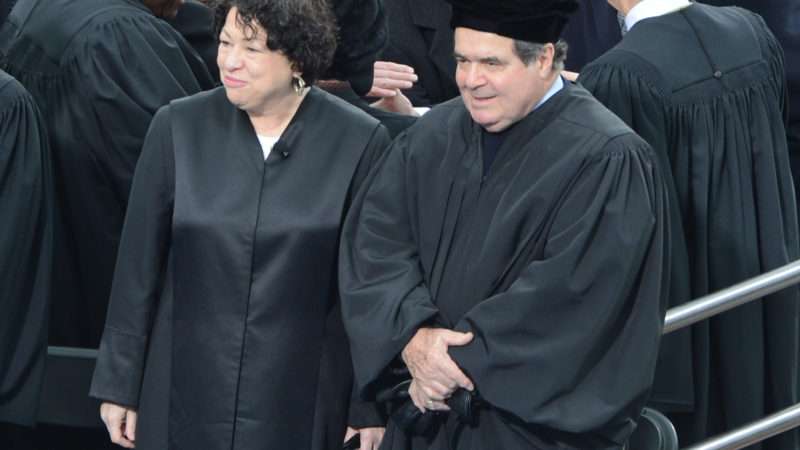From Straw v. Dentons US LLP, decided in June by Judge Louis L. Stanton (S.D.N.Y.);
Plaintiff Andrew U.D. Straw, an attorney appearing pro se, brings this action alleging that “language printed against [his] interest in a blog by defendant McGoff (of counsel of defendant Dentons) was in fact retaliation for [his] ADA work and inflicted emotional injuries as well.” Named as Defendants are Dentons US LLP; Kevin P. McGoff; Indiana University McKinney School of Law (IU McKinney); and Publisher Thomson West, Publisher of North Eastern Reporter….
In 2017, the Indiana Supreme Court suspended Plaintiff from the practice of law in Indiana on the ground that he had violated Indiana Professional Conduct Rule 3.1, “which prohibits bringing a proceeding or asserting an issue therein unless there is a basis in law and fact for doing so that is not frivolous.” … The court [wrote]:
“Further, we categorically reject Respondent’s arguments that he is being persecuted for his disability-related advocacy. A necessary corollary of the frivolousness of Respondent’s lawsuits is that no relief benefitting the plaintiffs (whether a client or Respondent himself) possibly could have come from those actions. Further, Respondent’s actions risked harm to himself and his client in the form of sanctions, and by Respondent’s own acknowledgement the relief he sought in Straw v. American Bar Association et al. could have led to discrimination against disabled law school faculty. In sum, Respondent does not face discipline for standing up for disabled persons’ rights, as he perceives, but rather for having done so incompetently.” …
Plaintiff brings this complaint … [based on] (1) a blog entry written by Kevin P.] McGoff on Lexology.com, “The Top Ten Ethics Problems for Lawyers,” which, in its section on malpractice, included a summary of the disciplinary action against Plaintiff; (2) the Indiana Law Review’s “2017 Survey of Indiana Lawyer Discipline Decisions,” which included the disciplinary action against Plaintiff; and (3) the North Eastern Reporter’s publication of the decision In Re Straw, 68 N.E.3d 1070 (Ind. 2/14/2017).
[A.] Plaintiff’s allegations against McGoff
Plaintiff argues that “[t]his ‘Top 10’ serves to ridicule lawyers who were disciplined[.]” … Plaintiff … quotes the blog’s summary of his case [emphasis by plaintiff]:
“In Matter of Straw, 68 N.E.3d 1070 (Ind. 2017), Respondent advanced a series of frivolous claims and arguments in four lawsuits, three of which were filed on his own behalf. The first suit was a defamation suit where opposing counsel sought information from Respondent and in response, Respondent sued opposing counsel in federal court, alleging racketeering activity and seeking $15,000,000 in damages and injunctive relief. The second suit was in federal court against the ABA and 50 law schools, alleging violations of the Americans with Disabilities Act (‘ADA’), which was dismissed for lack of standing. Respondent lost the third suit, an employment discrimination claim, because he let the statute of limitations lapse without filing. The fourth case was a post-dissolution proceeding where Respondent filed suit alleging defendants had violated the ADA by discriminating against the former husband, which was dismissed. The Court held that a suspension for a period of 180 days, without automatic reinstatement, was warranted for Respondent’s misconduct.” …
Plaintiff argues, “I didn’t lose anything”; “none of my cases were frivolous and use of the word frivolous was part of a scheme of collusion between my former employer [‘a Title II entity’], the Indiana Supreme Court, and other courts.” McGoff’s “only source was the Indiana attack made against me after I made an ADA complaint about the Indiana Supreme Court.” McGoff should “have mentioned my federal lawsuit to stop this vicious attack against me,” as well as “the cheating that went on, with the 7th Circuit hiring my hearing officer from Indiana WHILE HE WAS MY APPELLEE,” and “that the disciplinary complaint was made by the ADA coordinator in immediate retaliation against my own ADA complaint in 2014 against her very same employer.”
The “language [Plaintiff] object[s] to in this blog entry concerns [his] bogus Indiana Supreme Court discipline.” For these reasons, Plaintiff “must have justice against Attorney McGoff and his firm, who don’t know what they are talking about and published very hurtful and painful things against [him] without even asking [him] what happened or [his] side.”
[B.] Plaintiff’s allegations against IU McKinney and Thomson West
Plaintiff’s claims against IU McKinney and Thomson West arise out of similar facts—both of these Defendants reported about the disciplinary case against Plaintiff. It appears that Thomson West did nothing more than publish the Indiana Supreme Court’s decision in the North Eastern Reporter, but according to Plaintiff, the “Northeast Reporter is published by a private publishing company called Thomson West and even if the Indiana Supreme Court and its judges are immune … repeating rubbish that otherwise would be IIED or defamation or an ADA violation does not insulate the private publisher from paying damages in collusion with a state entity.”
As for IU McKinney, when it “published an attack on me by the executive director of the Indiana Attorney Disciplinary Commission, Mr. Michael Witte, this was also an ADA Titles II & V retaliation,” and IU McKinney “was fully aware that it was publishing on the Internet and seeking maximum coverage all over the country, including New York.” …
[A.] Retaliation Claims Under the Americans with Disabilities Act
Plaintiff’s claims against Defendants relies on a long chain of causation. He argues that he “had a right to file that 2014 ABA lawsuit and the others motivating the discipline.” Indiana’s “attack on this lawsuit was retaliation against it.” Indiana’s disciplinary complaint was also retaliation. And therefore, Defendants’ act of “[r]epublishing the vicious attacks of my former employer and a disloyal ADA coordinator and saying ‘I should have known better’ amount[s] to additional retaliation and collusion with that state supreme court.”
The antiretaliation provision of the ADA provides: “No person shall discriminate against any individual because such individual has opposed any act or practice made unlawful by this chapter or because such individual made a charge, testified, assisted, or participated in any manner in an investigation, proceeding, or hearing under this chapter.”
To state a claim for retaliation under the ADA, a plaintiff must show: “(i) [the] plaintiff was engaged in protected activity; (ii) the alleged retaliator knew that plaintiff was involved in protected activity; (iii) an adverse decision or course of action was taken against plaintiff; and (iv) a causal connection exists between the protected activity and the adverse action.”
Plaintiff argues that the ADA antiretaliation provision applies broadly “to any individual or entity that seeks to prevent an individual from exercising his or her rights or to retaliate against him or her for having exercised those rights,” and that any “form of retaliation or coercion, including threats, intimidation, or interference, is prohibited if it interferes with the exercise of rights under the Act.” But the statute does not apply as broadly as Plaintiff claims. For one thing, the Second Circuit has held that the retaliation provision of the ADA, like the rest of the ADA, does not provide for individual liability. For this reason, Plaintiff’s ADA claim or claims against McGoff must be dismissed.
Even assuming that Thompson West or IU McKinney—which Plaintiff sues as publishers, not as employers, public entities, or any other “covered entities” as defined by the ADA—could be liable to Plaintiff under the ADA, Plaintiff fails to allege facts that would establish the elements of a retaliation claim.
Generally, “any activity designed ‘to resist or antagonize …; to contend against; to confront; resist; [or] withstand’ discrimination prohibited by Title VII constitutes a protected oppositional activity.” A lawsuit intended to eradicate discrimination thus ordinarily constitutes protected activity, even if the suit is unsuccessful, but only if the plaintiff “can establish that he possessed a good faith, reasonable belief that the underlying challenged actions … violated th[e] law.”
Here, it is questionable whether Plaintiff can establish that his lawsuits constituted protected activity, since at least two courts—the Indiana Supreme Court and the Seventh Circuit Court of Appeals—have already held that Plaintiff’s lawsuits did not have a good-faith basis, and therefore warranted the disciplinary action taken against him.
In any event, Plaintiff cannot satisfy the remaining elements of a retaliation claim, because Thomson West’s publication in a book (a regional reporter of state-court rulings and opinions) of a decision of the Indiana Supreme Court cannot constitute prohibited adverse action, and nor can the other Defendants’ authoring or publication of commentary, whether in a blog post or law review or elsewhere, about that decision. In any event, there is no indication that the authors or publishers were motivated by any animus against Plaintiff….
For these reasons, Plaintiff fails to state a claim that any Defendant retaliated against him in violation of his rights under the ADA.
[B.] Intentional Infliction of Emotional Distress
… Plaintiff’s allegations that information about his disciplinary proceedings was published do not involve “extreme and outrageous conduct.” Moreover, the full decision in that disciplinary matter is already a matter of public record and is available in publicly accessible case law databases. Plaintiff’s allegations that Defendants reprinted information about his suspension therefore do not state a claim for intentional infliction of emotional distress, and the Court dismisses these allegations for failure to state a claim on which relief can be granted.
[C.] The First Amendment
Because Plaintiff seeks to hold Defendants liable based on their having published a court decision and commentary about that decision, Plaintiff’s claims raise issues under the First Amendment. “[S]peech is of public concern when it can ‘be fairly considered as relating to any matter of political, social, or other concern to the community,’ or when it ‘is a subject of general interest and of value and concern to the public.'” A state supreme court decision is certainly a matter of public concern, and attorney disciplinary proceedings are as well.
The Court also notes that “the Free Speech Clause of the First Amendment can serve as a defense in state tort suits, including suits for intentional infliction of emotional distress.” The Court cannot punish or hold Defendants liable merely for publishing a summary of Plaintiff’s disciplinary action and their commentary about that decision. Because Defendants’ actions constitute speech on a matter of public concern, the First Amendment is a defense to any liability.
Judge Stanton later transferred the case, and Straw’s motion for reconsideration, to another judge:
Plaintiff seeks to have this matter reassigned to a Judge “who does not have a Marine Corps officer background from the time the base where my mother and I were poisoned started being toxically fouled by the U.S. Marine Corp.” … I have no wish to have my long-ago service as a Marine Corps officer a source of belief in a pro se litigant that his complaint was unfairly dismissed. He is utterly convinced that when he was a baby he and his mother were poisoned by the Marine Corps while they were in the Naval Hospital at Camp Lejeune, North Carolina where his father was serving as a marineand the poisoning gave him mental disabilities which have plagued his life….
[A] decent respect for the prose litigant’s core feelings can be stretched, in a multi-judge court, to “any other reason justifying relief.”
But in July, Judge John G. Koeltl reaffirmed Judge Stanton’s analysis:
[T]his Court has independently reviewed the complaint and concludes that Judge Stanton’s dismissal order dated June 11, 2020 was correct. In particular, and as Judge Stanton noted, the plaintiff is complaining about the publication of a decision by the Supreme Court of Indiana that the defendants had a First Amendment right to disseminate and describe. Moreover, the plaintiff has failed to allege a plausible claim for violation of the ADA or for the intentional infliction of emotional distress.
from Latest – Reason.com https://ift.tt/2TzW0IG
via IFTTT


